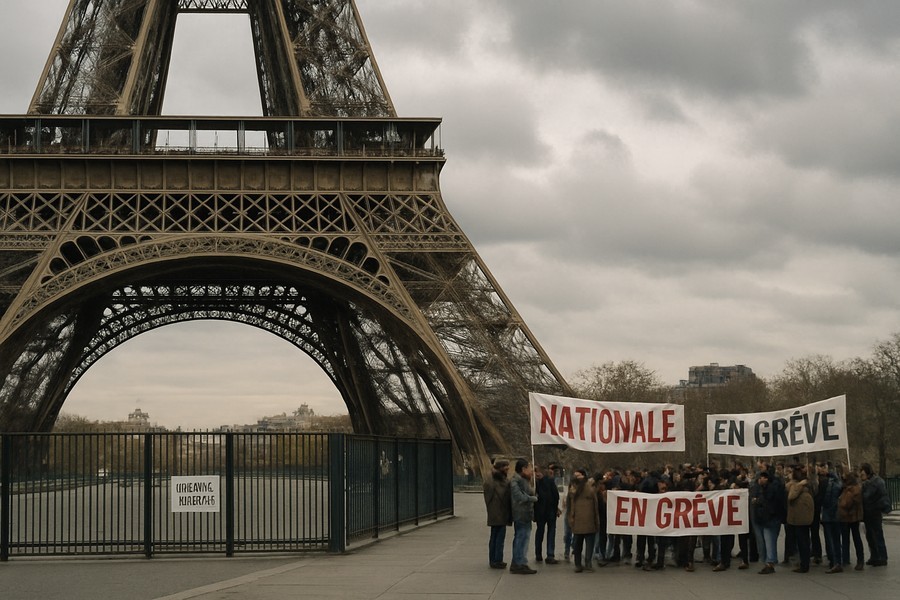
Iconic Landmark Shuts Down Amid Widespread Worker Disruption in France
One of France's most recognizable landmarks, the Eiffel Tower, was unexpectedly closed due to a comprehensive strike by the country's primary labor organizations.
This closure comes as a result of multiple protests across the country. Demonstrators filled the streets of over 200 towns and cities, voicing their disapproval of budget cuts and advocating for a wealth tax hike. This latest show of public unrest is a continuation of previous protests that began amidst political unrest and intense budget discussions.
Public Demonstrations in Paris
The capital city of Paris saw a considerable turnout of protesters, including workers, retirees, and students. They began their demonstration in the afternoon from the Place d'Italie. Upon reaching the Eiffel Tower, they were greeted by a notice stating that the landmark was closed due to the strike, offering apologies for the inconvenience.
Demands of the Unions
The unions are calling upon Prime Minister Sébastien Lecornu to reconsider the proposed budget measures put forth by his predecessor. They argue that the proposed measures, which include freezes on social welfare and austerity measures, will further reduce the spending power of low-wage and middle-class workers. In addition to this, they are demanding increased taxes on the wealthy.
Lecornu, who assumed his position just a month ago, has yet to reveal his budget plans or appoint his government ministers, but it is anticipated that he will do so in the next few days. The budget bill is expected to be debated in the deeply divided parliament before the year's end.
Unions and Public Outcry
The head of the CGT union, Sophie Binet, pointed out the unprecedented nature of this situation, stating, "It's true, it's the first time that there are three days of strikes and protests in a month without a government or budget. It shows the level of social anger."
When questioned about the timing of the strike action, she said, "Why are we protesting now? Because we feel that it's now that the decisions are being made, and we want to be heard."
Public Participation in Protests
The union claims that nearly 600,000 people participated in the nationwide strikes and protests. The Paris Police Prefecture reported that approximately 24,000 people were involved in the demonstration in Paris.
The national rail company reported that high-speed train services operated as usual, but some regional services experienced disruptions. In Paris, the metro operated near normal capacity, although many commuter trains were running with reduced capacity.
Notably, some teachers and health care workers also joined the strike, following similar protests last month. Earlier in September, over 500,000 demonstrators marched in towns and cities across France, including Paris. Unions reported that over 1 million workers and protesters took part in the nationwide demonstrations. The week before that, another day of anti-government action saw streets filled with smoke, burning barricades, and tear gas as part of a campaign dubbed "Block Everything."
